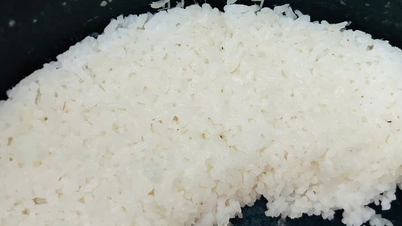According to Elizabeth Barnes, a nutritionist in the US, the increased risk of poisoning lies in the biological characteristics of oysters. Oysters are filter feeders; they absorb everything in their environment, including bacteria, viruses, and toxins.
When water sources become polluted, pathogenic microorganisms can accumulate in oysters, according to the health website Verywell Health .

Oysters are very healthy, however, eating raw oysters can increase the risk of food poisoning.
Photo: AI
Potential risks from vibrio and norovirus
One of the most common pathogens found in raw oysters is Vibrio bacteria. This type of bacteria thrives in warm water environments.
As the global climate warms, rising ocean temperatures allow vibrio to thrive in more areas and year-round. This means that eating raw oysters always carries risks, regardless of the season.
In addition, norovirus is also a significant threat. This virus commonly causes symptoms such as nausea, vomiting, and abdominal pain.
Norovirus can survive harvesting, transportation, and storage. A fresh oyster with no unusual odor can still contain millions of viruses that can cause illness in humans.
Cooking oysters thoroughly helps reduce the risk of food poisoning.
When oysters are cooked to an internal temperature above 63°C, most harmful microorganisms are destroyed. However, no method guarantees the complete elimination of all pathogens. Eating raw oysters means directly introducing bacteria and viruses into the body, increasing the risk of food poisoning.
Spoiled oysters often have a strong, fishy, or ammonia-like odor, especially noticeable after cooking. In these cases, the oysters should not be consumed as they may have been contaminated or decomposed. However, smell alone cannot determine the safety of raw oysters. Some oysters containing pathogens may still emit a normal smell, leading consumers to be careless.
High risk for people with weak immune systems.
People with weakened immune systems, the elderly, pregnant women, or those with liver disease or diabetes are advised to completely avoid eating raw oysters. If infected with vibrio or norovirus, these groups may experience more severe, even life-threatening, complications. Common symptoms include abdominal pain, diarrhea, vomiting, fever, and dehydration.
In many cases, food poisoning from raw oysters can lead to sepsis if not treated promptly.
Source: https://thanhnien.vn/tac-hai-cua-viec-an-hau-song-18525102707494619.htm





![[Image] Close-up of the newly discovered "sacred road" at My Son Sanctuary](/_next/image?url=https%3A%2F%2Fvphoto.vietnam.vn%2Fthumb%2F1200x675%2Fvietnam%2Fresource%2FIMAGE%2F2025%2F12%2F13%2F1765587881240_ndo_br_ms5-jpg.webp&w=3840&q=75)










































































































Comment (0)